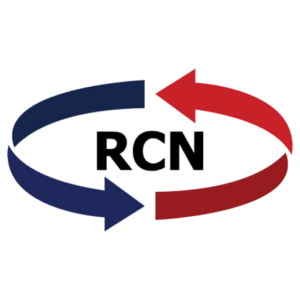How to Build a Collaborative Real Estate Team
Building a successful real estate sales team in Singapore involves more than just assembling talented agents. While having skilled professionals is undoubtedly important, success in today’s competitive real estate market needs more than individual talent. After all, the real estate landscape is continuously evolving; client expectations are rising, and regulatory frameworks are becoming more complex.
With how dynamic the environment is, the real estate team should move beyond working in silos and start working in productive teams.
Why Collaboration Matters in Real Estate
Fostering collaboration within the team becomes the key to unlocking higher performance and building a team that delivers consistent results. While individual performance matters, a collaborative real estate team is better positioned to share knowledge, pool resources, and provide exceptional client service.
Collaboration can:
- Lead to higher sales figures through cross-selling and upselling opportunities
- Encourage learning and knowledge sharing among team members
- Improve overall client satisfaction by offering comprehensive services
- Build a stronger company culture rooted in teamwork and support
Leaders and managers in real estate firms play a crucial role in cultivating a collaborative team culture. Their responsibilities extend beyond simply guiding their teams to achieve business objectives; they must also create a synergistic and supportive work environment where every team member feels valued and empowered. This can be achieved by encouraging open communication within teams and supporting each member’s personal growth.
By serving as proactive guides, leaders not only strengthen each member’s individual capabilities but also enhance overall team cohesion.
What Are the Key Strategies to Building a Real Estate Team?
1. Establish a Clear Team Vision and Shared Goals
For a real estate sales team to thrive, the leadership must clearly define the team’s vision, mission, and values. This vision should reflect not only the company’s broader objectives but also the unique dynamics of the local Singapore real estate market. When your team understands your goals and how their contributions fit into the bigger picture, motivation increases, and they feel more invested in achieving collective success.
In addition to defining your team’s overall mission, make sure to establish SMART (Specific, Measurable, Achievable, Relevant, Time-bound) goals. These goals provide a clear roadmap for success and create a framework for tracking progress. For example, if your goal is to increase property listings by 15% over the next quarter, every team member should know how their daily actions contribute to that objective. A shared vision and aligned goals create unity and ensure that everyone is working towards the same end result.
2. Foster Open Communication and Active Listening
In a fast-moving industry like real estate, where timing is crucial, it’s essential for team members to feel comfortable sharing ideas, voicing concerns, and offering feedback. Fostering a culture of open communication not only improves collaboration but also builds trust within the team.
Leaders can facilitate open communication by creating safe spaces for team members to speak freely. This can be achieved through regular team meetings where members are encouraged to share updates, discuss challenges, and collaborate on solutions. Beyond group discussions, one-on-one sessions between team leaders and individual agents are equally important. These meetings offer opportunities for personal feedback, performance reviews, and addressing any concerns privately.
3. Define Roles and Responsibilities
Clear roles and responsibilities are critical to avoiding confusion and ensuring accountability within your real estate sales team. In a fast-paced industry like real estate, overlapping duties or unclear expectations can lead to misunderstandings and missed opportunities. Therefore, it’s essential to clearly define what each team member is responsible for and how their role fits into the team’s overall workflow.
By outlining specific duties, you create a sense of ownership for each team member. For instance, one agent might specialise in handling high-end property listings, while another focuses on rental properties. Similarly, certain team members may take the lead in prospecting new clients, while others focus on closing deals. This clarity ensures that everyone knows their specific responsibilities, helping to avoid duplication of efforts and enabling more efficient teamwork.
4. Provide Opportunities for Professional Growth
Investing in your agents’ professional development could help build a sustainable real estate team. Giving your team opportunities for professional growth not only boosts their individual skill sets but also enhances the team’s overall effectiveness.
Consider offering regular training sessions or workshops focused on key areas such as sales negotiation techniques and client relationship management. These sessions help agents develop new skills that can be immediately applied in their roles. For newer agents, pairing them with more experienced colleagues in mentorship programmes could be an excellent way to accelerate learning while fostering a collaborative environment.
5. Implement Effective Conflict Resolution Strategies
Even in the most collaborative teams, conflicts will happen — whether it’s because of different opinions, misunderstandings, or competition for leads. What sets successful teams apart is how they handle these conflicts. Having clear strategies in place helps keep things running smoothly and ensures that disagreements don’t harm the team’s trust or productivity.
- Address conflicts early: Don’t let issues simmer—this can create tension and make them harder to solve later. Encourage team members to speak up as soon as they have concerns. Leaders should create a constructive process that focuses on finding solutions that work for everyone involved.
- Emphasise active listening and empathy: It’s important that team members listen to each other without interrupting and try to understand different perspectives. Leaders should guide open discussions where everyone has a chance to be heard. If needed, mediation by a neutral third party, like an HR representative, can help resolve more difficult conflicts.
- View disagreements as opportunities for growth: Different viewpoints can lead to innovative ideas when handled well. By promoting open dialogue and resolving conflicts productively, you’ll strengthen team collaboration and create a more resilient, cohesive group.
6. Recognise and Reward Achievements
Recognising and celebrating achievements is key to maintaining a motivated and high-performing real estate team. Acknowledging the hard work and dedication of individual team members, as well as the team as a whole, boosts morale and promotes a positive work environment. When team members feel valued for their contributions, they’re more likely to remain engaged and continue striving for success.
In real estate, achievements can range from securing a new client or closing a major deal to consistently meeting sales targets. As a leader, it’s important to recognise both individual contributions and collaborative efforts. This ensures that while individual success is celebrated, teamwork and cooperation remain at the heart of your operations.
7. Leverage Technology for Collaboration
Technology plays a crucial role in enhancing collaboration within real estate teams. Leveraging the right tools can streamline communication, optimise workflow, and keep everyone connected. These are the types of applications you can consider using within your teams:
- Customer Relationship Management (CRM) System: A CRM allows your team to efficiently manage leads, track client interactions, and store important information in a central location. It also allows them access to up-to-date information, reducing miscommunication and improving the overall client experience. Some CRM apps you can consider are QuickDesk Marketing and Crystal Dash CRM.
- Project Management Tools: Tools like Asana or Trello help track tasks, assign responsibilities, and monitor progress in real-time. These platforms promote accountability and ensure everyone is on the same page, especially during complex projects.
- Communication Applications: Apps like Slack or WhatsApp facilitate quick, informal exchanges and allow team members to stay connected throughout the day, whether they’re in the office or showing properties outside.
With the right mix of technology, you can enhance collaboration, keep projects moving forward, and ensure no important details are overlooked.
8. Continuously Evaluate and Improve
To maintain a high level of collaboration and success, it’s essential to continuously evaluate your team’s performance and identify areas for improvement. Real estate is a dynamic industry, and what works today may not be as effective tomorrow. By regularly assessing your team’s effectiveness, you can stay on top of issues and adapt to evolving market conditions.

Learn How to Build a Collaborative Real Estate Team with a Team-Building Course
Building a collaborative real estate sales team goes beyond simply hiring the right people. It requires a sustained effort to foster open communication, align team members around shared goals, and continually invest in both personal and professional growth. By implementing the right strategies, you can potentially create a team that thrives in the highly competitive real estate market and achieve your business’s long-term goals.
If you need more insight into how to improve your team’s collaboration as a leader, consider enrolling in the Real Centre Network’s team-building course. Aside from providing quality real estate agent training courses, we also have team-building courses that can help real estate teams maintain a culture of teamwork, improve communication, and enhance overall productivity. Have our professionals guide your team through interactive exercises and proven techniques to strengthen collaboration, resolve conflicts effectively, and achieve shared goals. Invest in your team’s success and unlock their full potential with Real Centre Network’s team-building expertise.
For more real estate information, check out our guide on how to start a real estate business.
